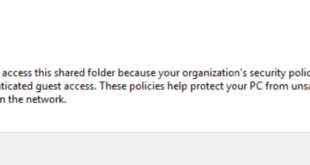 How to install/remove Cinnamon Desktop Environment in Kali Linux
How to install/remove Cinnamon Desktop Environment in Kali Linux
Cinnamon is a GTK+-based desktop environment. It originally started as a fork of the GNOME Shell, which is a user interface, and was initially developed by (and for) Linux Mint.
The Linux Mint development team was initially unsure about the future of the distribution after the release of GNOME 3. Its new interface, GNOME Shell, did not fit the design goals the team had in mind for Linux Mint, but there were initially no available alternatives. Linux Mint 11 “Katya” was released in May 2011 with the final release of GNOME 2, but it was clear that a better solution was needed, as GNOME Panel was no longer being developed. Therefore, the team set out to improve GNOME Shell so that it would fit Linux Mint’s goals, and the result was the “Mint GNOME Shell Extensions” (MGSE). In the meantime, the MATE desktop environment was forked from GNOME 2. The Mint team decided to incorporate MATE into Linux Mint 12 “Lisa” alongside MGSE, to give users a choice whether to use the traditional GNOME 2 desktop or the GNOME 3-based MGSE.
However, MGSE fell short of expectations. Since GNOME Shell was going in a different direction than the Mint developers had in mind, it was clear that MGSE was not viable in the long run. In response to this problem, GNOME Shell was forked to create the Cinnamon project, allowing the Linux Mint developers better control over the development process and to implement their own vision of the GNOME interface for use in future releases of Linux Mint. The project was publicly announced on 2 January 2012 on the Linux Mint blog.
From version 1.2 onward, Cinnamon uses Muffin, a fork of the GNOME 3 window manager Mutter, as its window manager.
Cinnamon 1.6 was introduced on 18 September 2012 with new default file browser Nemo replacing Nautilus, although Nautilus is still optional.
Cinnamon 1.8 was released on 5 May 2013. Gnome-Control-Center has been forked. It is now called Cinnamon-Control-Center and it combines Gnome-Control-Center and Cinnamon-Settings. Gnome-Screensaver has been also forked and is now called Cinnamon-Screensaver. Now there is possibility to install and update applets, extensions, desklets and themes through control-center instead of placing example themes to .themes folder. It also feature modified Nemo interface. Desklets that come with release are like Widgets.
Cinnamon 2.0 was released on 10 October 2013. From this version, Cinnamon is no longer a frontend on top of the GNOME desktop like Unity or GNOME Shell, but “an entire desktop environment”. Cinnamon is still built on GNOME technologies and uses GTK+, but it no longer requires GNOME itself to be installed. Biggest changes in this release are improved edge-tiling, improved user management, configurable individual sound effects and performance improvements for full screen applications. Source: Wikipedia
## Cinnamon Desktop ##
# How to install Cinnamon Desktop Environment in Kali Linux
apt-get install kali-defaults kali-root-login desktop-base cinnamon
# How to remove Cinnamon Desktop Environment in Kali Linux:
apt-get remove cinnamon
Back to main article: How to install/remove different Desktop Environment or Window Manager in Kali Linux 1.x
Thanks for reading.
 blackMORE Ops Learn one trick a day ….
blackMORE Ops Learn one trick a day ….


Hi, thank you for the tutorial
but do you have any idea how to recover the original kali menu, because the cinnamon menu doesn’t have the same order (especially for kali linux tools )
Hi NERO,
See below:
Solution:
Edit following file
leafpad /etc/xdg/menus/cinnamon-applications.menuIn the file go down to the section named Internet and add the following line
applications-merged/kali-applications.menu
So it should look something like this
.....
.
applications-merged/kali-applications.menu .
.
.
.....
Now save the file, Logout and Login back. The “Kali Linux” menu should display in Cinnamon desktop’s application menu.
This seems like a new issue. Previously MATE desktop had a similar issue. It seems now Cinnamon is behaving the same way. The menu will still be somewhat broken, but I don’t see any better way right now. I will keep looking.
Thank you for your quick answer, but there is an other thing
when i launch the command “update-alternatives –config x-session-manager” an I have this result (it’s in french):
Sélection Chemin Priorité État
—————————————————————————————
* 0 /usr/bin/gnome-session 50 mode automatique
1 /usr/bin/gnome-session 50 mode manuel
2 /usr/bin/gnome-session-fallback 40 mode manuel
It didn’t show cinnamon desktop …
Hello,
Very useful stuff! Loving your website.
I’ve installed cinnamon through apt-get, restart and selecting it on log in screen.
Not working. Loads the GNOME environment although I’m selecting cinnamon.
Any ideas what might be causing that?
Thank you.
usanus,
Thats a bit weird.
Try this: How to permanently switch Desktop Environments and select Cinnamon as primary Desktop.
Good Luck.
-BMO
when i login to lxce and lxde, my pulse audio wasn’t work.. but when i login to gnome everything is fine.. thank
Hi, thank you for the tutorial
but there’s a way to install a 2.x version of cinnamon ? because it install the 1.6.7 version.
thanks
Cinnamon seems to have ok, but nothing changes. I typed ‘cinnamon’ in the terminal as if to launch cinnamon and get this message:
Window manager warning: Screen 0 on display “:0.0” already has a window manager; try using the –replace option to replace the current window manager.
Im not too sure what to do after, any suggestions would be appreciated.
Cheers!
hello, i can’nt install this theme on my Kali Linux
root@myname:~# apt-get install kali-defaults kali-root-login desktop-base cinnamonReading package lists… Done
Building dependency tree
Reading state information… Done
E: Unable to locate package cinnamon
Cinnamon install but fails to run. Have permanently changed desktop environment to cinnamon with command in follow up tut but remains unable to load. Any ideas of getting cinnamon to run is greatly appreciated as I hate gnome environment.
Thanks
To set cinnamon as default desktop:
1. In terminal:
dbus-launch gsettings set org.gnome.desktop.session session-name ‘cinnamon’
2. Reboot
3. Enjoy :-)
Thanks Marvin.